Self Publishing
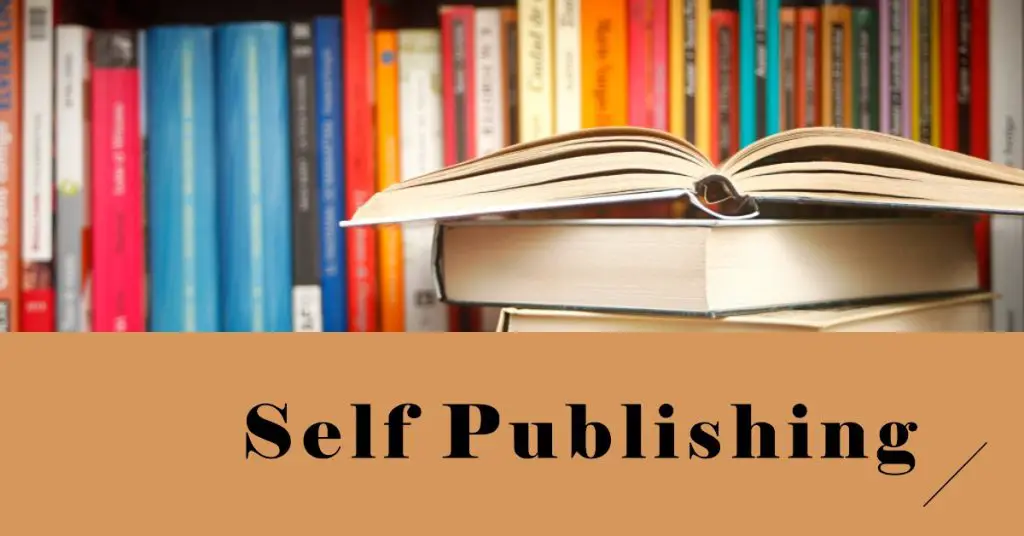
Have you always dreamed of seeing your name on the cover of a book? With self publishing, that dream can become a reality.
Self-publishing has revolutionized how authors bring their work to readers, giving them control over content and pricing.
However, while self-publishing may seem appealing for aspiring authors, it can also be overwhelming and daunting.
That’s why we’ve put together these nine tips to help unlock your book’s potential and make self-publishing a breeze.
From formatting to marketing, we’ve got you covered with practical advice and insider knowledge that will take your book from manuscript to bestseller in no time!
- Self Publishing
- What Is Self-Publishing?
- 1. Benefits Of Self-Publishing
- 2. How To Get Started
- 3. Choosing A Publishing Platform
- 4. Writing And Editing The Book
- 5. Designing The Cover And Formatting The Text
- 6. Distributing Your Book
- 7. Promoting Your Work
- 8. Pricing Strategies For Self-Published Works
- 9. Legal Considerations For Authors
- Final Thoughts on Self Publishing
What Is Self-Publishing?
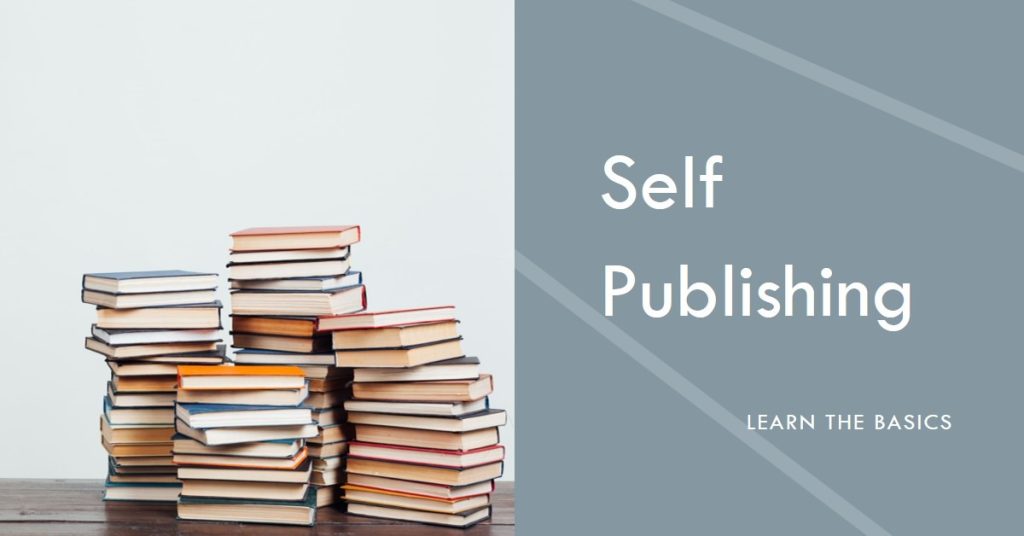
Self-publishing involves bypassing traditional publishing houses to print or distribute your work.
This could mean printing physical copies, using a print-on-demand service, or publishing your work as an ebook online.
You will all remain responsible for product design, editing, marketing, and distribution.
You can also decide when to publish and how much to charge for your work. It’s a great way to get creative and ensure your content reaches its intended audience.
By taking control of the publishing process, self-publishing gives authors more freedom than ever.
With this newfound freedom comes opportunities – and that’s what we’ll explore next: the benefits of self-publishing.
1. Benefits Of Self-Publishing

Self-publishing offers authors a unique opportunity to take their work directly to readers, creating an independent and successful career.
Many benefits to self-publishing make it an attractive option for writers:
- The most significant advantage of self-publishing is the author’s control over every aspect of the book’s production, from cover design and layout to promotion and marketing.
- Authors can customize their books to stand out in an ever-growing market.
- As the publisher, authors also retain all rights to their work, enabling them to receive higher royalties per book sold.
These advantages are desirable for those who want to build a long-term career as an author without relying on traditional publishing houses or agents.
With self-publishing, authors have the freedom and flexibility to choose what kind of books they want to write, publish when they want, and keep more money from each sale.
With this knowledge, authors can take full advantage of modern publishing technology and create a robust portfolio of works that speaks for itself. Ready to get started?
2. How To Get Started
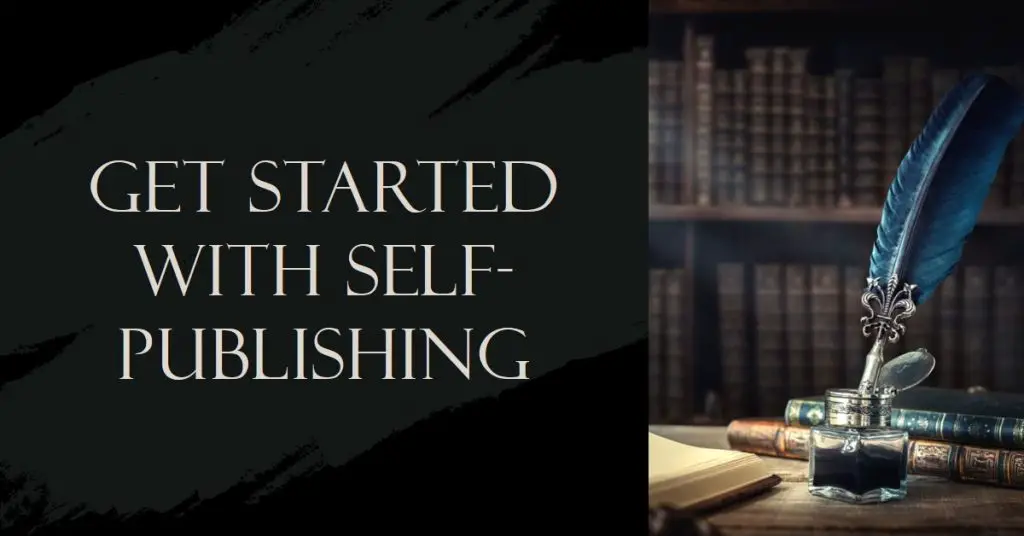
Getting started on a self-publishing journey can be intimidating, but it can also be advantageous with the right resources and attitude.
The first step is deciding what book you’d like to write. Do you have a story that you’ve been wanting to tell?
Or do you have some knowledge that could benefit others in the form of non-fiction? Whatever it may be, ensure your idea will appeal to readers.
Once you’ve decided what kind of book you’d like to write, it’s time to choose a publishing platform.
From there, you’ll need to begin formatting and designing your book to look professional and appealing once published.
With the proper preparation and dedication, you’ll soon find a finished product ready for readers!
3. Choosing A Publishing Platform
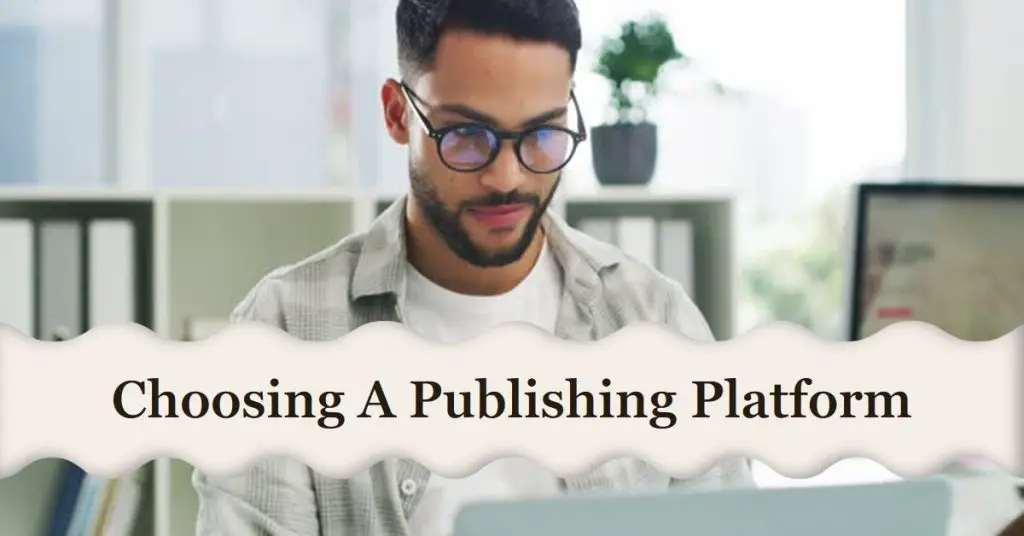
Once you’ve decided to self-publish, selecting a publishing platform is the next step.
Plenty of platforms promise quick and easy publication, but it’s essential to understand that each offers different services, features, and requirements.
When scouting for a platform, consider what kind of book you’re writing.
If your book is non-fiction, you should use a platform with more marketing tools than one geared toward fiction authors.
Or, if you’re writing a children’s book, look for a platform that offers specialized cover design and layout options.
Take the time to read through each platform’s terms and conditions carefully before making your choice. Here are a few of the popular Self-Publishing Platforms online:
- Amazon KDP
- IngramSpark
- PublishDrive
- Barnes & Noble Press
- Apple Books
- Kobo Writing Life
- Draft2Digital
- Lulu Press
Make sure the one you choose meets your needs as an author – from your budget to the type of books they specialize in – so you can be sure it will provide everything needed for successful publication.
With these criteria in mind, it’s time to move on to writing and editing your book.
4. Writing And Editing The Book
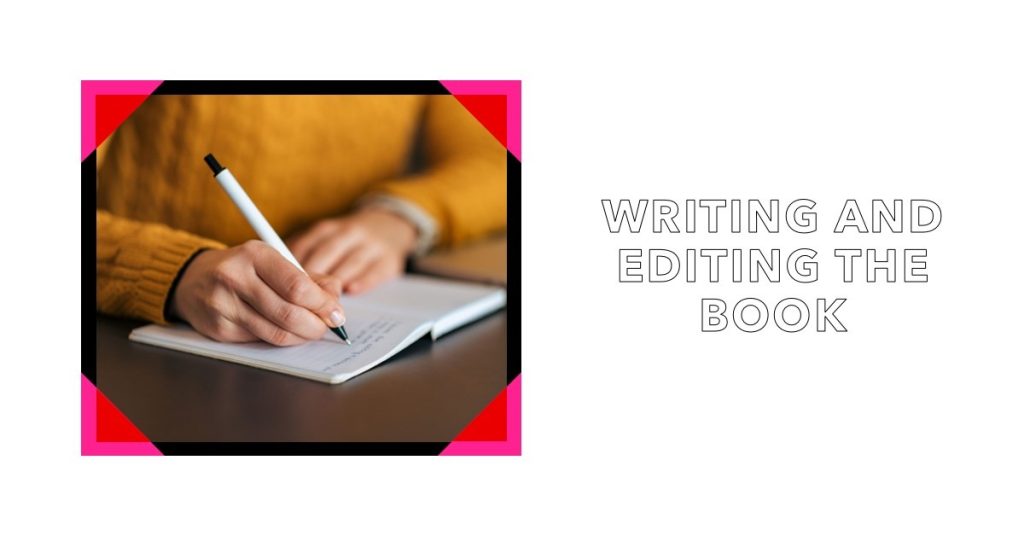
Writing and editing a book is a labor of love. It requires dedication, commitment, and attention to detail.
As an author, it’s essential to clearly understand the story you want to tell and how you will tell it.
Once the overall plotline and structure are determined, the next step is to get down to crafting words into sentences and paragraphs that will convey your message.
You must also understand what type of language you need to use for readers to engage with your work.
Writing styles may vary from humorous to severe, but regardless of the approach chosen, one should strive for consistency throughout their work.
When it comes time for editing, be sure to read through your work multiple times – ensuring there are no grammar or spelling errors left behind.
Here are some of the popular Book Editing Software:
You can ensure your book is ready for publication with diligent effort and careful attention!
Now it’s time to turn our focus toward designing the cover and formatting the text.
5. Designing The Cover And Formatting The Text

Now that you have completed your book’s writing and editing process, it’s time to make it look as good as it reads.
Designing the cover of your book is an essential step in self-publishing. It is the first thing potential readers will see and sets the tone for how they interact with your work.
Formatting the text is also essential to creating a professional-looking product. It ensures that all book elements are uniform and easy to read.
Consider font size, line spacing, page margins, indentations, and headings when formatting text.
With a few clicks of a mouse, you can transform your document into a polished piece that looks aesthetically pleasing and organized.
With these two steps out of the way, you are now ready to start distributing your book to the world!
6. Distributing Your Book

Once you decide to self-publish, the next step is distributing your book. Thankfully, various options are available to get your work out into the world.
Several print-on-demand services, such as Amazon KDP and IngramSpark, allow you to create physical copies of your book and ship them directly to customers.
You can also make digital versions of your book in multiple formats, such as PDFs or ebooks, through vendors like Draft2Digital or Apple Books.
With these options, you can ensure anyone who wants to read your book can find it. What’s more, they’ll be able to access it quickly and easily without any extra effort on your part.
Now that you’ve taken the necessary steps for distribution, it’s time to start promoting your work so people know about it!
7. Promoting Your Work

Promoting your work as a self-publisher is essential for success. You need to be proactive and create a strategy to garner attention from readers and booksellers alike.
Your online presence is critical, so take advantage of social media platforms like Facebook, Twitter, and Instagram to share your work.
Create an author website to showcase your books and any upcoming projects you’re working on.
You can also use blogging websites like Medium or WordPress to reach out directly to potential readers.
Establishing relationships with other authors, publishers, and booksellers is essential to gain visibility.
Networking events are great ways to meet people in the publishing industry, while local readings or signings can help create a buzz about your book.
Don’t forget the power of word-of-mouth – let friends and family know about your work, and encourage them to spread the word!
You can get your name out there with dedication and hard work – it just takes some effort!
With proper promotion in place, it’s time to focus on pricing strategies for self-published works.
8. Pricing Strategies For Self-Published Works
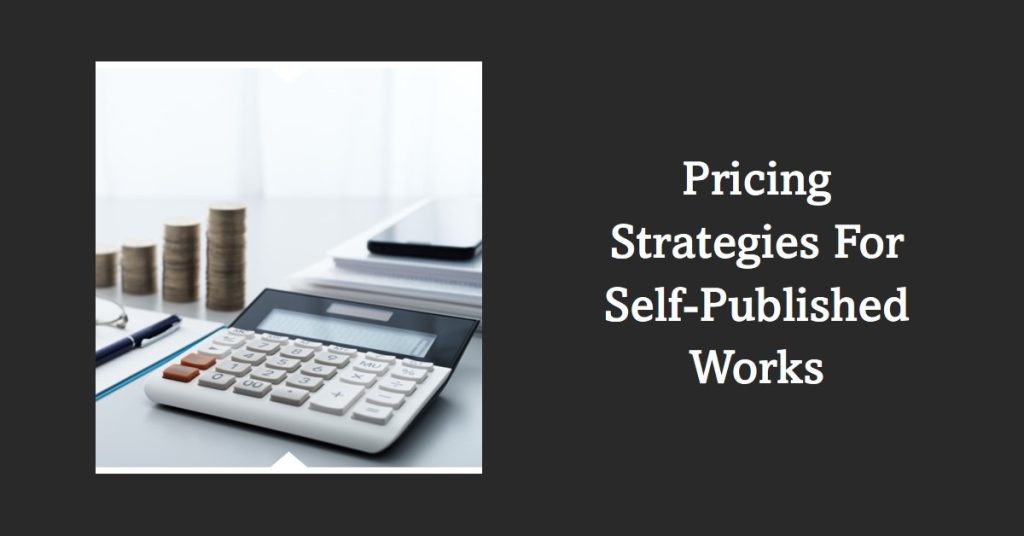
According to a survey by Bowker, the average ebook price was $2.99 in 2018. As a self-published author, pricing your work thoughtfully can be an essential factor in marketing success.
It’s critical to consider the customer base you are targeting and the perceived value of your work when determining a price point.
When setting prices, it’s essential to consider how much time and effort you’ve put into writing, editing, designing, and promoting your book and the market for similar works.
You should also consider the cost of printing or manufacturing if you plan on selling physical copies of your book.
Once you have determined the amount that would fairly compensate you for your efforts, it is up to you to decide what price range works best for potential customers.
Lower prices may make sense if you are looking for higher sales volume; however, if you want more significant profit margins per sale, higher prices may be more appropriate.
No matter what pricing strategy you decide on for your self-published work, it is essential to remain flexible and adjust accordingly if needed.
Keep an eye out for trends in the market and customer feedback so that you can optimize your pricing strategy over time.
With thoughtful consideration of these factors, authors can find success in pricing their self-published works effectively. Now let’s look at some legal considerations for authors.
9. Legal Considerations For Authors

When self-publishing, authors need to consider legal issues from the start. Knowing your rights and responsibilities is critical to a successful venture.
The good news is many resources are available to help you protect yourself and your work.
First, you’ll want to research copyright law and learn how it affects your rights as an author.
Copyright law gives you exclusive rights to your work, including the right to reproduce, distribute, make derivative works, and perform or display them publicly.
You’ll also want to determine if there are any restrictions on using material that isn’t yours in your work. Getting permission from the original creator before using their work in yours is essential.
In addition, you’ll need to understand trademark law if you plan on using a logo or brand name associated with your book or digital product.
You may also consult an attorney specializing in publishing law for advice about other legal matters related to self-publishing, such as contracts, libel laws, privacy laws, and more.
Doing so can help ensure all legal requirements are met before releasing your work into the public domain.
Ultimately, taking the time upfront for legal considerations can save you a lot of headaches down the road!
Final Thoughts on Self Publishing
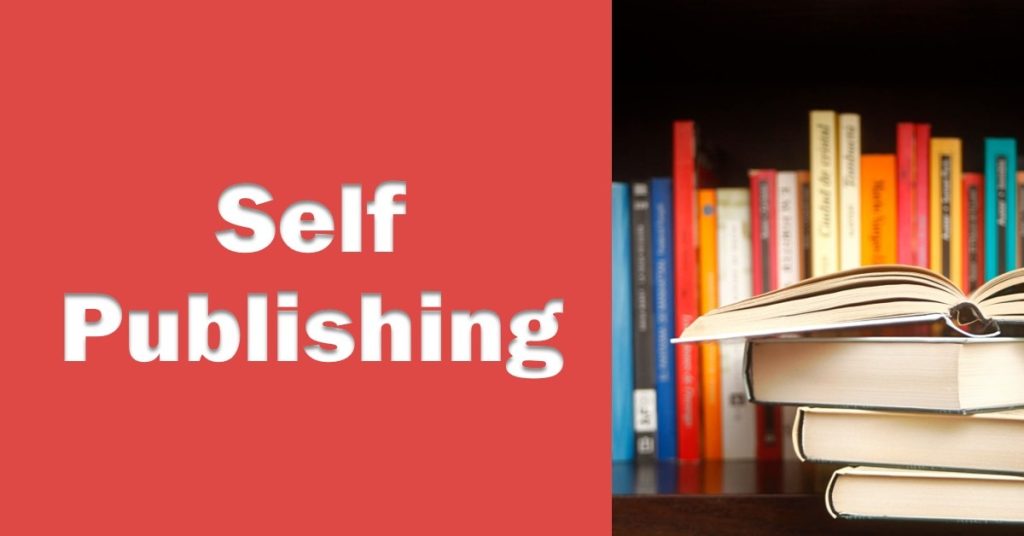
Self-publishing is a great way for authors to get their work recognized and out into the world.
It has become increasingly popular recently, with self-published books accounting for 45% of all ebooks sold in 2019.
This statistic shows that there is immense potential for authors to find success through this method.
Self-publishing can be a daunting process, but with the right strategies and resources, it doesn’t have to be.
With a little bit of research and some dedication, you can successfully create and promote your work! Taking control of your publishing journey can be an enriching experience.
For aspiring authors considering self-publishing their work, I encourage you to take the plunge! With the right mindset and approach, you can make it happen. Good luck!




Leave a Reply